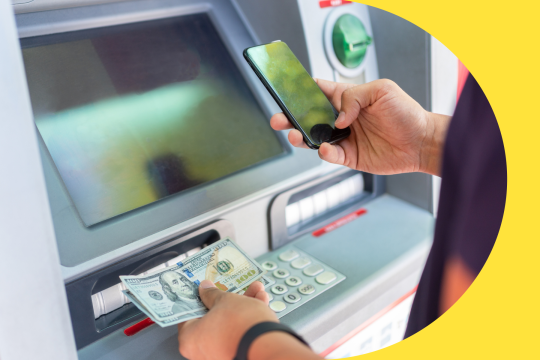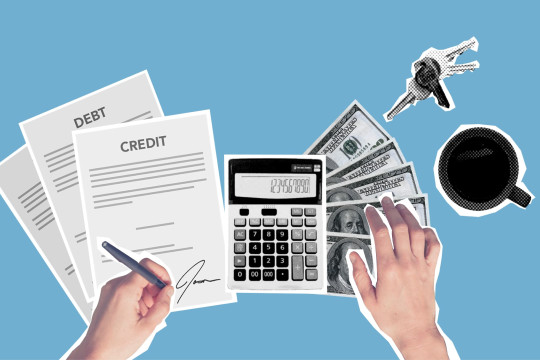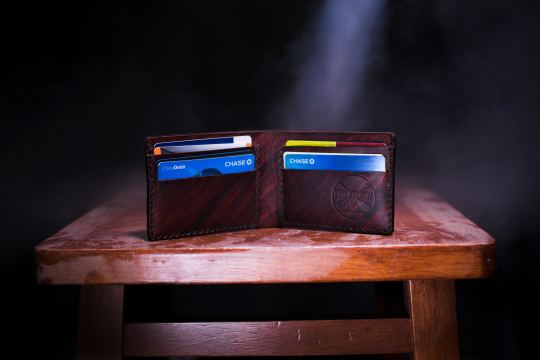If you see suspicious activity in your credit history, you can protect yourself by putting a freeze on your credit report. This action stops lenders from issuing any accounts in your name without your permission and safeguards you from potential credit fraud.
To help you use this process to keep your credit status secure, here’s everything you need to know about when and how to freeze credit.
What is a credit freeze?
A credit freeze blocks lenders, creditors, and any other outside parties from checking your credit report or approving new credit accounts that would go on your report. So, if someone happens to steal your private information, like your Social Security number (SSN), a credit freeze prevents the thief from opening new credit accounts in your name with that information.
There are multiple credit bureaus that collect and maintain the information that goes into building your credit report, but the three major credit bureaus are Equifax, Experian, and TransUnion. Because these bureaus work independently, there’s no “umbrella” freeze option. Instead, you must freeze your credit report with each bureau separately.
How do I freeze my credit with all three bureaus?
Here’s how you can initiate a credit freeze with each of the three major credit bureaus:
- Equifax®: Start by visiting the official Equifax website or calling either their automated phone line (1-800-685-1111) or customer service line (1-888-298-0045). You can also mail in a form to request a freeze. No matter which method you choose, you’ll need to provide some personal information, including your SSN, to complete the process.
- Experian®: Similar to Equifax, Experian allows you to request a freeze online, over the phone, or by mail. For a phone request, call 1-888-397-3742 to speak with a customer service representative. Be sure to have your personal details ready to share.
- TransUnion®: TransUnion also offers an online portal, phone service (1-888-909-8872), or a mail option for credit freezes. To complete a freeze online or by phone, simply follow the prompts and provide the necessary information.
Always make sure you’re using a legitimate website or contacting the correct phone number when supplying sensitive information like your SSN or other personal details.
It’s also important to note that a credit freeze is different from a credit lock. A credit lock allows individuals to quickly and easily prevent access to their credit report, similar to a credit freeze. ut it usually costs money and offers more convenient options (like mobile app access) for temporary or permanent locking. Credit freezes, on the other hand, are free and federally regulated, meaning they offer legally enforced protection to block credit inquiries at no cost to you.
How to freeze a child's credit
Anyone could be the target of financial fraud — including children. Even if your child has no existing credit, it’s not impossible for someone to access their SSN and attempt to open credit in their name. This is why many parents choose to freeze their child’s credit report.
For children under 16, parents or guardians must provide documentation that confirms the child's identity and the guardian’s legal authority to request the freeze. This documentation may include copies of the child’s birth certificate, SSN card, and legal paperwork proving guardianship or parental rights. If the child has no existing credit, the contacted credit bureau will create a file in the child’s name to then freeze.
If you’re looking to freeze the credit of a spouse or an incapacitated person you care for who’s age 16 or older, you would follow similar steps. But you’ll also need to provide documentation like court orders or power of attorney documents.
Pros and cons of freezing your credit
The ability to freeze your credit protects your credit health and security, but the process also has its limits and can be troublesome to lift when needed. Here are some of the pros and cons to consider before putting a freeze in place.
Pros
- Protection against potential fraud. A credit freeze significantly lowers the risk of credit fraud as a result of identity theft. With a freeze in place, new lenders can’t access your credit reports, which prevents people who might steal and abuse your private information from opening credit accounts in your name.
- Cost-effective security. Since September 21, 2018, credit freezes have been free by law. This makes them an accessible option for everyone, offering a cost-effective alternative to paid credit monitoring services.
- Control over access. You get to choose how long your credit freeze lasts, and you can even keep it in place indefinitely if you decide. You also have the flexibility to temporarily lift the freeze to allow credit checks during legitimate financial activities, like applying for a loan or renting a property.
- No effect on credit scores. Freezing your credit doesn’t affect your credit score or your ability to build credit. Use any credit cards you have as you normally would, and your credit score will continue to update each month per usual.
Cons
- Lifting freezes individually. If you want to lift your credit freeze, you must individually contact each bureau again. This can be a frustrating process, especially if you need to lift a freeze quickly.
- Potential delays. A credit freeze can delay any application you make for cell phone service, an apartment rental, or other scenarios requiring a credit check. Lifting a freeze isn’t instantaneous, so plan accordingly to avoid inconveniences.
- Limited protection scope. While a freeze can help prevent potential credit fraud, it doesn’t protect against all forms of financial fraud. If a criminal has already opened a credit account in your name or gained access to your online banking information through a hack, a credit freeze wouldn’t prevent access to those existing accounts. Instead, you’ll need to contact your bank or the lender that approved the fraudulent account to fix any credit or banking issues.
How to unfreeze credit
Unfreezing your credit is a straightforward process that you can do online, by phone, or by mail. Here's a more detailed look at these methods:
- Online or by phone. This is the fastest way to unfreeze your credit. Simply log in to the account you used to initiate the freeze or call the bureau’s customer service. Federal law requires the bureaus to lift the freeze within one hour for phone or online requests, making this the most efficient option if you need quick access to your credit.
- By mail. If you prefer or need to submit your request via mail, expect a longer wait time. The bureaus have up to three business days from receiving your request to unfreeze your credit. To avoid delays, make sure you provide all required information (typically the same as what you supplied when applying for the freeze).
Reasons for unfreezing your credit
While keeping your credit frozen is a great protective measure, certain circumstances might require you to lift it. Here are some reasons why you might choose to temporarily or permanently reverse a credit freeze:
- Applying for new credit. Whether you’re applying for a mortgage, auto loan, or new credit card, lenders will need to review your credit report before they can approve new credit.
- Renting an apartment or buying a phone. Landlords and service providers often need to check your credit to evaluate your reliability as a tenant or customer.
- Using "buy now, pay later" payment services. Platforms like Affirm may require you to unfreeze your credit before they can process your application and approve your buy-now-pay-later purchase.
- No longer needing the security. If you’re able to secure your compromised information and confirm that no one is attempting to abuse your credit any longer, you may want to lift the freeze to bypass the hurdles that come with it, like delays in processing credit card or loan applications.
Keep an eye on your credit score with EarnIn
Protecting your credit and preventing fraudsters from abusing your financial information is an important part of maintaining good credit health. If you’re looking for ways to keep tabs on your credit, EarnIn can help.
With EarnIn's Credit Monitoring tool, you can check your credit score any time for free. Get a comprehensive look into your financial standing with monthly updates on your credit score.
Download the EarnIn app today to keep a close eye on your financial health, stay proactive against potential fraud, and navigate your finances with greater confidence and security.
You may enjoy












EarnIn is a financial technology company not a bank. Subject to your available earnings, Daily Max and Pay Period Max. EarnIn does not charge interest on Cash Outs. EarnIn does not charge hidden fees for use of its services. Restrictions and/or third party fees may apply. EarnIn services may not be available in all states. For more info visit earnin.com/TOS.






